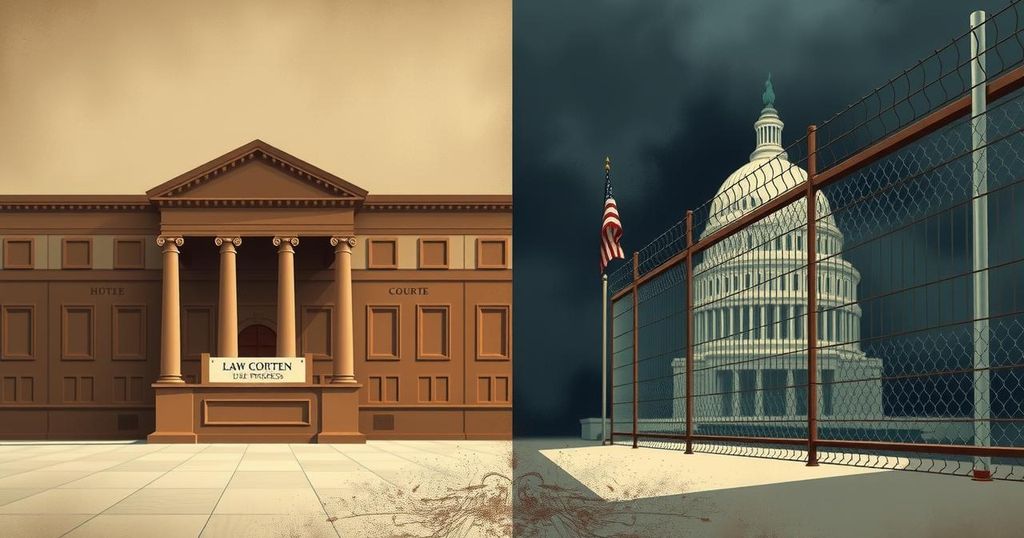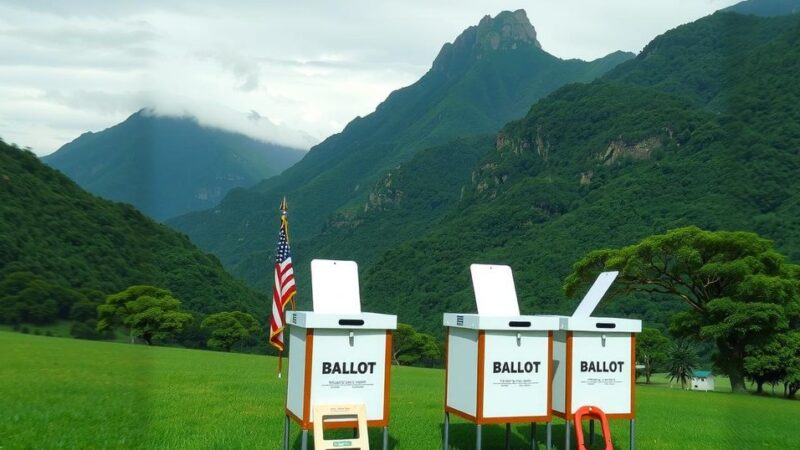The Kilmar Abrego Garcia case reveals a sharp divide between Democrats, who advocate for due process and individual rights, and Republicans, led by Trump, who focus on immigration and crime. The situation has catalyzed Democratic unity against Trump’s policies, signaling potential changes in public sentiment and future immigration strategies.
The case of Kilmar Abrego Garcia, a Salvadoran citizen mistakenly deported by the Trump administration, has ignited a significant immigration debate. For Democrats, it embodies core American values such as due process and limiting governmental overreach, while for Republicans, including President Trump, it underscores concerns regarding crime and foreign threats. This clash signals a pivotal moment in immigration discourse as both parties seek to define their positions, with the Trump administration using the situation to reinforce its hardline stance on illegal immigration.
Democrats are rallying around Garcia’s case, viewing it as a direct challenge to Trump’s immigration policies. They argue that his deportation without proper communication represents a violation of individual rights. As the Trump administration intensifies its efforts to frame the issue, it is attempting to depict Democrats as defenders of alleged criminals, amid claims that Garcia has gang affiliations based on questionable testimony. Democratic leaders, however, argue that “due process and separation of powers are matters of principle” – highlighting the necessity for legal protections for all individuals, regardless of their immigration status.
Initially divided on immigration strategy, many Democrats are now uniting behind the Abrego Garcia case, with several representatives planning visits to El Salvador to advocate for his return. Senator Chris Van Hollen has actively engaged in discussions regarding Garcia, while other notable Democrats, such as Hillary Clinton and Bernie Sanders, have publicly condemned the administration’s actions as governmental overreach. This collective response represents a strategic shift for the party, emphasizing civil rights alongside immigration reform.
Amid this controversy, immigration remains a prominent issue that Trump continues to leverage to rally support. Polls indicate significant public backing for deportation of immigrants with violent criminal records, yet opinions are more divided regarding non-violent offenders. While Trump’s assertions about increasing crime rates among migrants lack empirical support, he continues to claim he is executing the mandate he was elected for, stating that he is focused on deporting individuals he characterizes as criminals.
The Trump administration has admitted that Garcia’s deportation was due to an administrative error while simultaneously branding him as a gang member without criminal charges substantiating this claim. This illustrates a potential divergence in public perception regarding the president’s authority versus due process rights, as evidenced by a ruling from the 4th U.S. Circuit Court of Appeals that criticized the government’s actions. The evolving stance of lawmakers, such as Representative Glenn Ivey, emphasizes the dual nature of the issue, recognizing it as both an immigration and a constitutional matter, which could have historical implications for separation of powers.
In summary, the Kilmar Abrego Garcia case serves as a critical focal point in the ongoing immigration debate, galvanizing Democratic opposition to the Trump administration’s policies while illustrating the complexities of due process within the context of immigration law. As public sentiment continues to evolve, this case could influence both policy and electoral strategies moving forward.
The Kilmar Abrego Garcia case highlights a significant clash between Democratic values of due process and Republican narratives focused on immigration and crime. While Democrats consolidate their stance around individual rights and governmental overreach, the Trump administration aims to maintain support by framing the debate around national safety. The resolution of this case may have profound implications for immigration policy and the legal interpretation of due process in America.
Original Source: apnews.com






